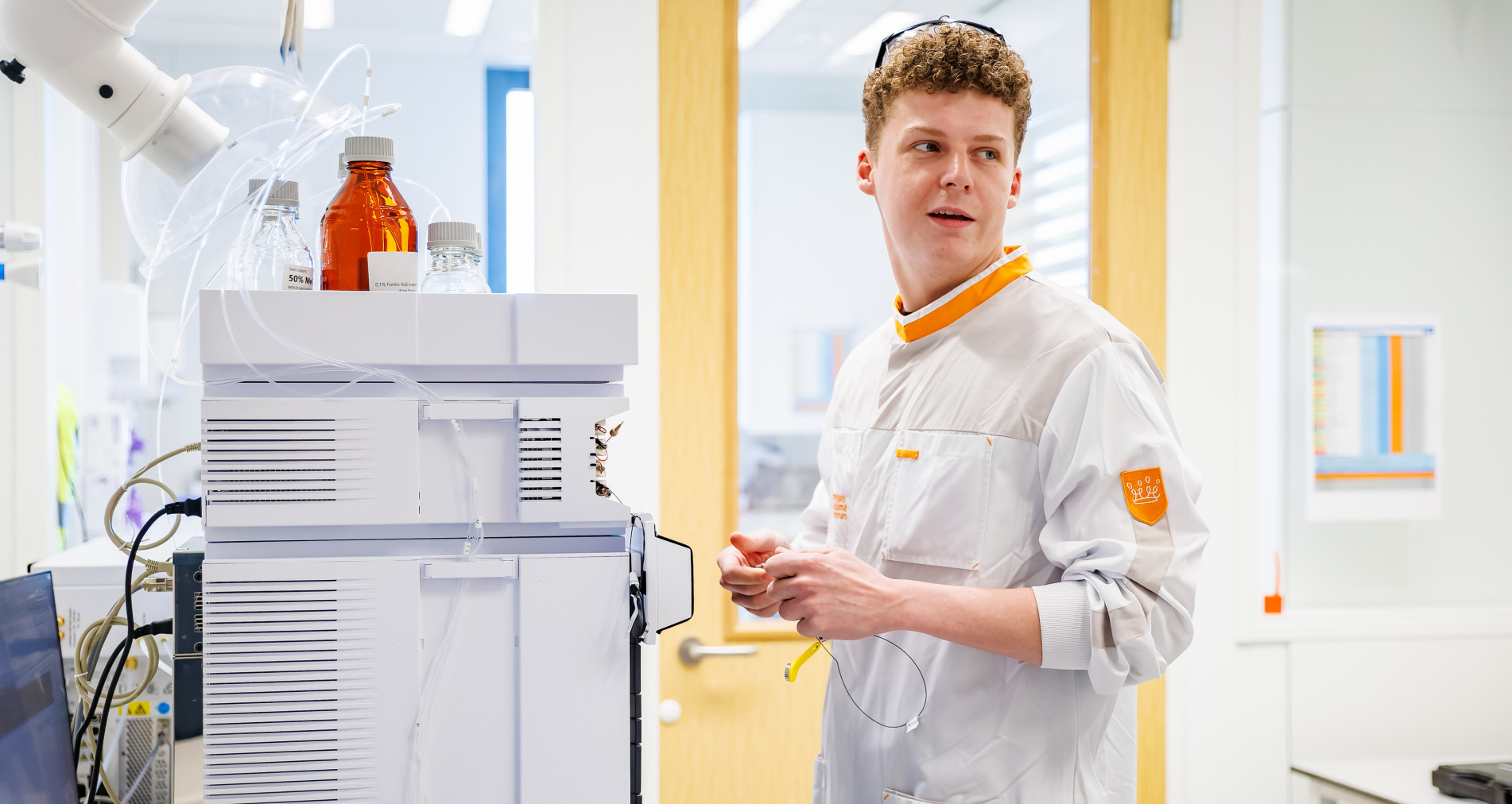Purpose for research
Drug concentrations are being measured for specialized pediatric oncology medication in the Máxima Center’s Drug Analysis Lab. High-end chromatographic equipment (LC-MSMS) enables specific, sensitive and quick measurements of several drug groups, such as conventional chemotherapy, kinase inhibitors, proteins, monoclonal antibodies, menin-inhibitors and much more. These assays can be part of preclinical research, pharmacokinetic studies as a part of phase I trials or for direct application for patients treated in the Máxima Center.
Pharmacogenetics is the field investigating the influence of genetic variation on an individual’s drug response or side effects. The first pharmacogenetic guidelines, including dosing advice on TPMT and NUDT15, have been implemented in the Máxima's clinical practice. For many other pharmacogenes (e.g. CYP3A4/3A5/2D6/2C9/2C19, UGT1A1, DPYD) evidence-base guidelines and software tools for variant allele annotation are being developed and validated for clinical implementation. The Drug Analysis Lab team checks and interprets genotyping results to provide an individualized dosing advice to the physician.
The pharmacological knowledge that is obtained is applied for further development. This makes the lab an important contributor to national and international research. Moreover, application for the children treated in the Máxima Center is faster and easier.
Services and support
The Drug Analysis Lab's facilities are available to researchers of the Máxima Center to have drug concentrations measured, whether this concerns an existing assay or the development of a new method. The lab also answers logistical questions, such as the processing and storage of pharmacokinetics samples and the compilation of lab kits for PK sampling. From a clinical perspective, the asparaginase activity assay for leukemia patients is performed in the lab.
For both internal and external applicants, specific information about drug monitoring is available through the TDM monographs. These monographs include practical guidelines for the collection, storage, and shipment of blood samples, reference values, interpretation of drug levels, and pharmacological background information.
Currently, the following monographs are available:



